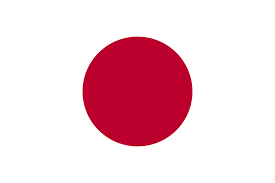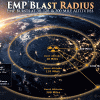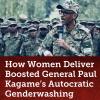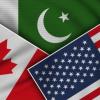Your Majesty,
You may think it impertinent of me, an Australian historian, to presume to address the Emperor of Japan. No doubt, many of your countrymen will think so and urge you to ignore this unsolicited letter.
But I write to you in an effort to find some connection between our countries beyond trade, tourism and the memory of the most terrible conflict our world has known. We are still recovering from that experience. Of the 50 million people who died in the Second World War, more than half were Asian people and Allied servicemen and women, the victims of Japanese aggression.
I write not in anger or bitterness, but rather in the spirit of respect and friendship. I do not share in the slightest degree the racial intolerance of some of my countrymen and women, whose hatred of the Japanese people festers decades after the last drop of blood fell to earth in the dying months of the Pacific War. But it is absurd to ‘hate’ a whole people, as a former Australian prime minister, Robert Menzies, reminded us in 1942.
I therefore appeal to our shared sense of humanity, in presenting you with my book, SANDAKAN: THE UNTOLD STORY OF THE SANDAKAN DEATH MARCHES (Random House Australia, 2012), the history of a little-known war crime that occurred between 1942 and 1945 in Borneo, when the island was an outpost of the Japanese Empire. It is the story of the agonising last days and needless deaths of more than 2400 Australian and British prisoners of war. Enslaved for three years in a Japanese prison camp at Sandakan, many died of disease, malnutrition and appalling treatment. Some 1100 survivors were then force-marched into the heart of the island. Of those, six came home – a 99.5 per cent death rate, the worst of any prisoner-of-war camp in the Pacific or European theatres of the Second World War.
The victims of Borneo were starved, tortured, shot, bayoneted or beheaded. The Death Marches were the biggest killer: sick and hungry men were forced to carry heavy loads through jungle and swamp, and over mountains, until they collapsed from exhaustion or disease or hunger, whereupon the guards shot or clubbed them to death. It was a policy of mass extermination. These crimes were committed in the name of the military regime over which your father held supreme command, under Article 6 of the Imperial Japanese Constitution.
The facts only partly convey the horror of the individual stories – stories of men who experienced unearthly suffering. Chaplain Harold Wardale-Greenwood, for instance, was an officer who led his troops on the Death Marches with his Christian god in his heart and hope for his men in his head, but he lost his faith in the face of such cruelty days before he succumbed to sickness. Captain Lionel Matthews was tortured to within an inch of his life but never broke. After each torture session, he would tap Morse signals on his knee to warn his fellow prisoners of what they were about to endure. Added to this were the countless acts of bravery and resistance by soldiers beaten, starved and exhausted beyond reach of hope or deliverance, prodded at bayonet point to a lonely death in the sodden jungles of Borneo.
Since the end of the war, no Japanese government has recognised or accepted historic responsibility for the Death Marches in Borneo. None has apologised to, recognised or made an effort to compensate the Australian and British families and the native people of Borneo for the atrocities that left behind so many widows, fatherless children and families in mourning for their boys. Japan’s silence on these crimes implies a reluctance to accept responsibility for them and redounds to the disgrace of the Japanese nation.
On behalf of the families of the victims of the Sandakan Prisoner of War Camp and Death Marches, I make a simple request of you, as the ultimate representative of your people: that you publicly recognise these events and apologise on behalf of the Japanese nation for the crimes committed in Borneo between 1942 and 1945.
Japan has not hitherto apologised as a nation. Individual Japanese officials have expressed personal remorse for ‘mistakes’ made in the war, or used the term owabi, which, as I understand it, means an apology that is not heartfelt. The most sincere form of Japanese apology is, I believe, rendered by the phrase moshiwake gozaimasen. Yet the world has never heard a Japanese leader say this on behalf of the Japanese people in relation to Pacific War crimes.
No apology can alleviate the terrible losses suffered by thousands of families. But it can atone for Japan’s silence and obfuscation, and render these events in the true light of history rather than as forgettable ephemera, untaught in Japanese schools and unacknowledged by the nation that perpetrated them. And your words – coming from the highest moral authority in Japan – would bring our two countries a step closer to that most elusive quality in the affairs of people: mutual understanding, which is surely the beginning of true forgiveness and friendship.
Yours sincerely,
Paul Ham
















